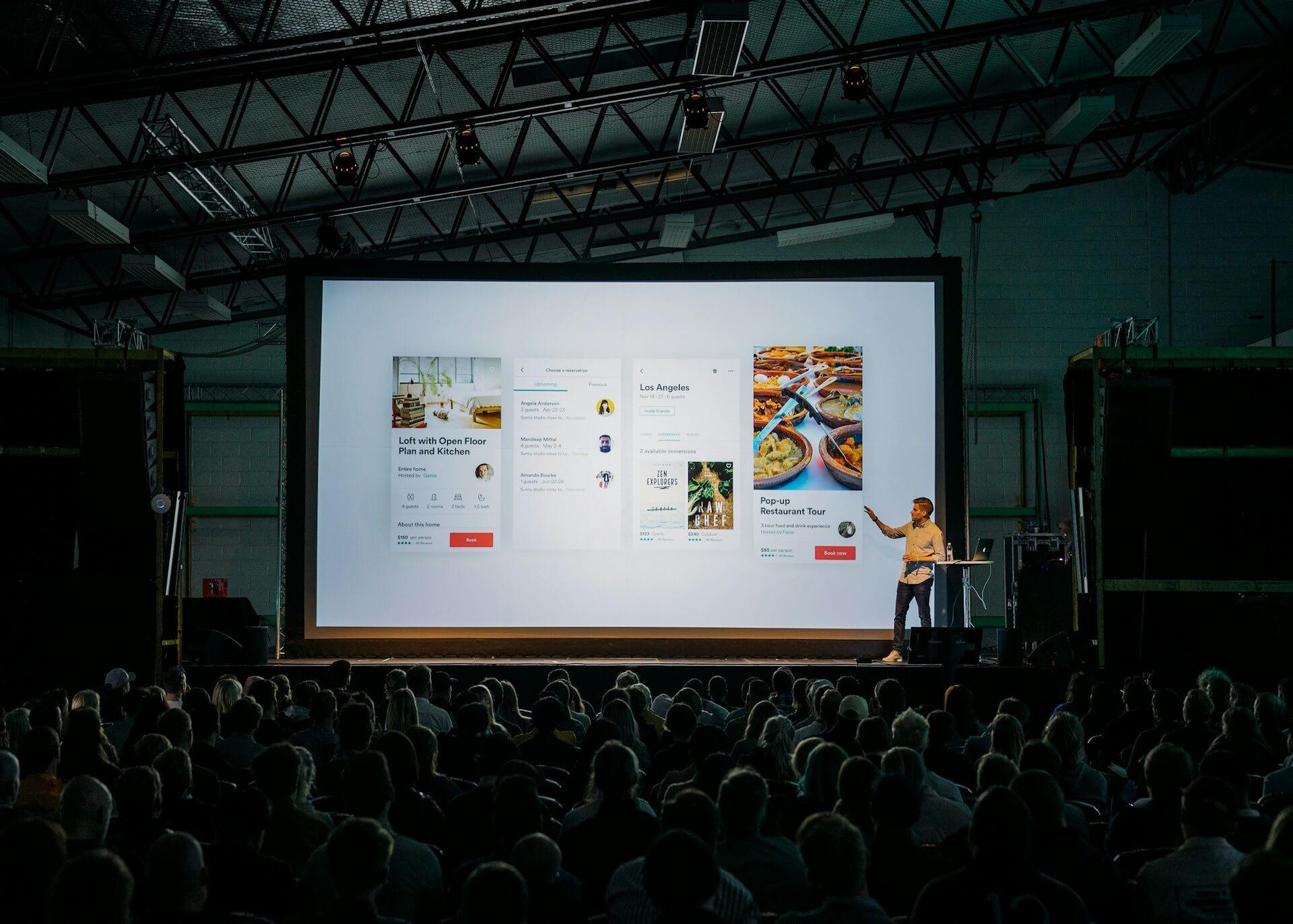How ChatGPT Will Destabilize White-Collar Work? A Deep Dive.
How ChatGPT Will Destabilize White-Collar Work? A Deep Dive.
By Team Remagine AI, March 3, 2024

Table of Contents
Introduction
The Rise of Artificial Intelligence in the Workplace
ChatGPT: A Game-Changer for White-Collar Work
Potential Disruptions to White-Collar Work
The Future of White-Collar Work
Ethical and Societal Implications of ChatGPT
FAQ
Introduction
In today's rapidly evolving technological landscape, artificial intelligence is reshaping the way we work. One such AI tool that is causing waves in the white-collar workforce is ChatGPT. Developed by OpenAI, this powerful language model is capable of generating human-like text responses, making it a game-changer for businesses looking to automate customer service, content creation, and more.
ChatGPT's ability to understand and respond to natural language queries has made it a valuable tool for businesses seeking to streamline their operations. By harnessing the power of machine learning, ChatGPT can quickly analyze vast amounts of data and provide accurate and relevant responses to users in real-time. This has the potential to revolutionize the way we interact with technology, making it easier and more efficient than ever before.
As ChatGPT becomes more widespread, it is likely to have a significant impact on white-collar work. By automating tasks that were previously performed by humans, ChatGPT could lead to job displacement and a shift in the skills required in the workforce. This raises important questions about the future of work and the role of AI in shaping our economy.
In this blog series, we will explore the implications of ChatGPT on white-collar work and delve into the potential challenges and opportunities it presents. Stay tuned for more insights and analysis on this groundbreaking technology.
The Rise of Artificial Intelligence in the Workplace

Artificial Intelligence (AI) has been making its mark in various industries, and the workplace is no exception. With the emergence of advanced AI models like ChatGPT, white-collar work as we know it is set to undergo significant changes. In this deep dive, we explore how ChatGPT will destabilize traditional white-collar work and what it means for the future of the workforce.
Automation of Routine Tasks
One of the key ways ChatGPT will impact white-collar work is through the automation of routine tasks. Tasks like data entry, email responses, and even basic customer service can be easily handled by AI-powered chatbots, freeing up human employees to focus on more complex and strategic work.
Improved Efficiency and Productivity
By taking over mundane tasks, ChatGPT can significantly improve efficiency and productivity in the workplace. Employees can spend more time on creative problem-solving and innovation, leading to better outcomes for businesses.
Reskilling and Upskilling
As AI continues to evolve, there will be a growing need for employees to reskill and upskill to stay relevant in the workforce. Companies will need to invest in training programs to help employees adapt to the changing landscape of work.
The rise of AI in the workplace, particularly with models like ChatGPT, is inevitable. While it may disrupt traditional white-collar work, it also presents opportunities for growth and innovation in the workforce. Embracing AI and adapting to its capabilities will be key for businesses and employees to thrive in the future.
ChatGPT: A Game-Changer for White-Collar Work

In the realm of white-collar work, artificial intelligence has been making waves with its ability to streamline processes and increase productivity. One such game-changer in the field is ChatGPT, a cutting-edge language model developed by OpenAI. This revolutionary tool has the potential to completely transform the way white-collar professionals work, leading to a potential destabilization of traditional work structures.
Enhanced Communication and Collaboration
ChatGPT is designed to facilitate seamless communication and collaboration among team members. Its advanced natural language processing capabilities enable it to generate human-like responses, making it a valuable asset for brainstorming sessions, project planning, and decision-making processes.
Automation of Repetitive Tasks
By automating repetitive tasks such as data entry, scheduling, and report generation, ChatGPT frees up valuable time for white-collar workers to focus on more strategic and creative aspects of their work. This increased efficiency can lead to a higher output and improved job satisfaction.
Disruption of Traditional Hierarchies
As ChatGPT becomes more integrated into white-collar workflows, traditional hierarchies within organizations may begin to shift. With the ability to provide instant feedback and support, this AI tool could empower employees at all levels to take on more responsibility and contribute to decision-making processes.
In conclusion, ChatGPT is poised to revolutionize white-collar work by enhancing communication, automating tasks, and disrupting traditional hierarchies. While the full extent of its impact remains to be seen, one thing is clear: the future of work is changing, and ChatGPT is leading the way.
Potential Disruptions to White-Collar Work

In the world of white-collar work, ChatGPT is poised to revolutionize the way we think about productivity and efficiency. This powerful AI tool has the potential to disrupt traditional office dynamics and fundamentally change the way we approach tasks and projects. Let's take a deep dive into how ChatGPT will destabilize white-collar work.
Automation of Routine Tasks:
One of the key ways ChatGPT will impact white-collar work is through the automation of routine tasks. From scheduling meetings to drafting emails, this AI tool can handle a wide range of administrative duties, freeing up valuable time for employees to focus on more strategic and creative endeavors.
Streamlining Communication:
ChatGPT's natural language processing capabilities can streamline communication within organizations, making it easier for teams to collaborate and exchange ideas. This could lead to faster decision-making processes and more efficient project management.
Redefining Job Roles:
As ChatGPT becomes more integrated into the workplace, it has the potential to redefine traditional job roles. Some tasks that were previously performed by humans may now be handled by AI, leading to a shift in responsibilities and skill requirements for white-collar workers.
Overall, the impact of ChatGPT on white-collar work is likely to be profound. By automating routine tasks, streamlining communication, and redefining job roles, this AI tool has the potential to revolutionize the way we work in the modern office environment.
The Future of White-Collar Work
In the ever-evolving landscape of technology, one of the latest advancements that is causing a stir in the white-collar work sphere is ChatGPT. This powerful AI tool, developed by OpenAI, has the ability to generate human-like text responses, making it a game-changer in the world of communication and customer service.
The Rise of ChatGPT in White-Collar Work
ChatGPT is quickly gaining popularity in various industries, from customer service to marketing. Its ability to handle multiple conversations simultaneously and provide quick, accurate responses is revolutionizing the way businesses interact with their clients.
Automation and Job Displacement
With the rise of ChatGPT, there is a growing concern about job displacement in white-collar professions. As more companies adopt this technology to streamline their operations, there is a fear that human employees may be replaced by AI, leading to a destabilization of the traditional white-collar work structure.
Upskilling and Adaptation
To stay competitive in the age of ChatGPT, white-collar workers will need to focus on upskilling and adapting to new technologies. This may involve learning how to work alongside AI tools like ChatGPT, rather than being replaced by them.
The future of white-collar work is undoubtedly being reshaped by ChatGPT. While there are concerns about job displacement, there are also opportunities for growth and adaptation in this new technological landscape. It will be interesting to see how businesses and employees navigate these changes in the coming years.
Ethical and Societal Implications of ChatGPT
In the ever-evolving landscape of artificial intelligence, ChatGPT has emerged as a powerful tool that is set to revolutionize white-collar work as we know it. However, with great power comes great responsibility, and it is crucial to examine the ethical and societal implications of this groundbreaking technology.
Job Displacement: One of the most pressing concerns surrounding ChatGPT is the potential for job displacement in white-collar industries. As this AI becomes more advanced, it could potentially automate tasks traditionally performed by humans, leading to layoffs and a shift in the job market.
Bias and Discrimination: Another ethical consideration is the potential for bias and discrimination in the output generated by ChatGPT. If not carefully monitored and regulated, this AI could perpetuate existing biases in society, leading to unfair outcomes for marginalized groups.
Privacy Concerns: The use of ChatGPT raises significant privacy concerns, as the AI collects and processes vast amounts of data from users. It is essential to establish clear guidelines and regulations to protect individuals' privacy and ensure that their data is not misused.
Accountability and Transparency: As ChatGPT becomes more integrated into various industries, it is crucial to establish accountability and transparency mechanisms to ensure that decisions made by this AI are ethical and fair. Companies must be held responsible for the actions of their AI systems and be transparent about how they are using this technology.
While ChatGPT has the potential to revolutionize white-collar work, it is essential to consider the ethical and societal implications of this technology to ensure a fair and just future for all.
FAQ
How will ChatGPT destabilize white-collar work?
ChatGPT's advanced natural language processing capabilities can automate tasks traditionally performed by white-collar workers, leading to potential job displacement.
What industries are most at risk of destabilization due to ChatGPT?
Industries such as customer service, content creation, and data analysis are particularly vulnerable to disruption from ChatGPT's automation capabilities.
Will ChatGPT completely replace white-collar workers?
While ChatGPT can automate certain tasks, it is unlikely to completely replace white-collar workers. Instead, it may lead to a shift in job roles and responsibilities.
How can white-collar workers adapt to the rise of ChatGPT?
White-collar workers can adapt by developing skills that complement ChatGPT's capabilities, such as creativity, critical thinking, and emotional intelligence.
What are the potential benefits of ChatGPT destabilizing white-collar work?
The potential benefits include increased efficiency, cost savings for businesses, and opportunities for workers to focus on higher-level tasks that require human ingenuity.
Related Blogs